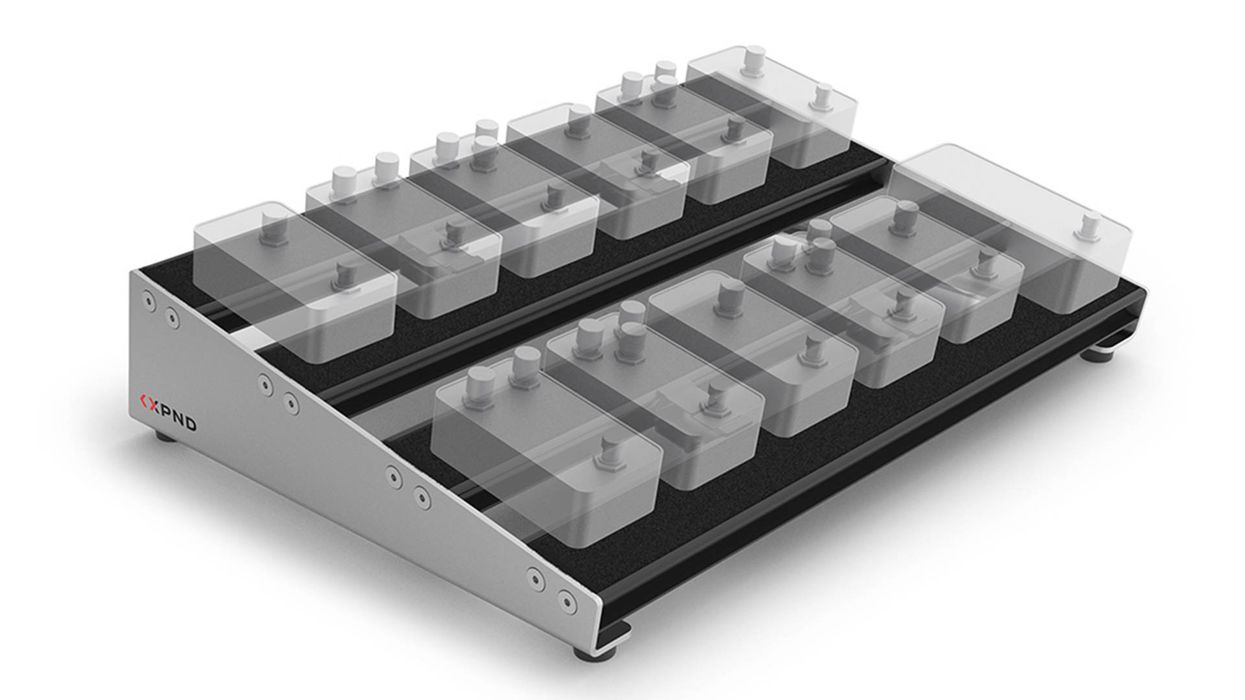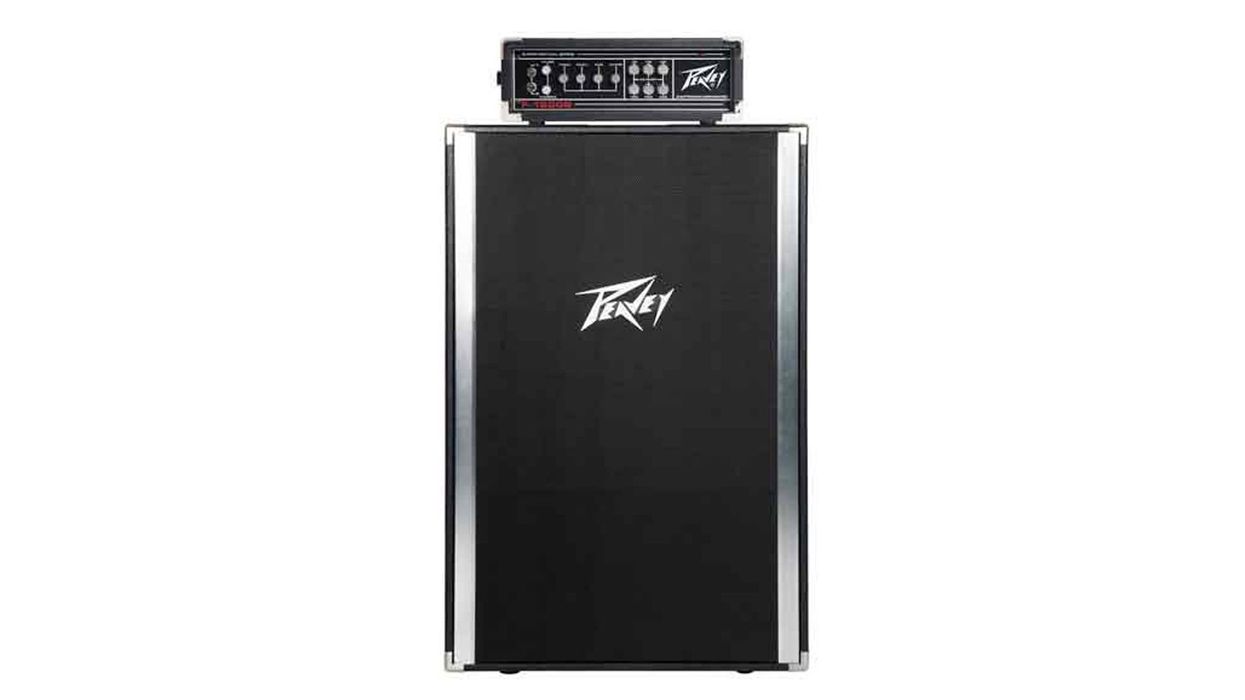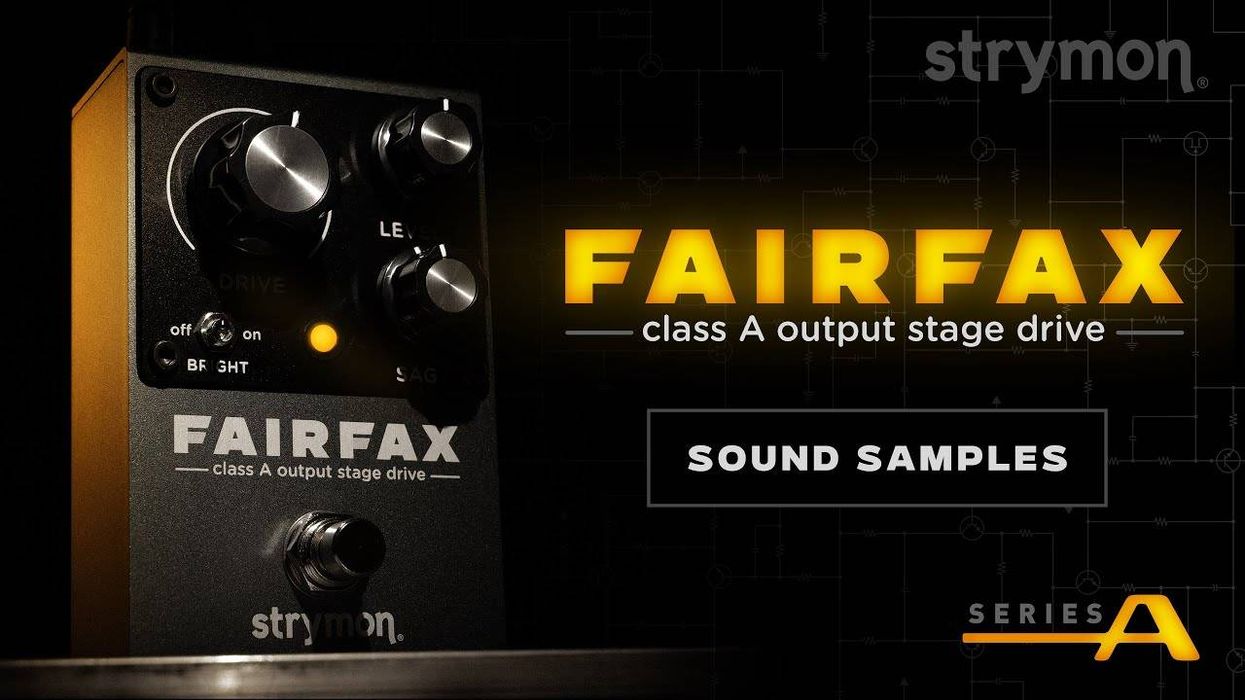“Hand or factory made?” is a question that I get asked so often that I wish I could write an “elevator speech” on a 3x5 card to carry at all times. Sadly, there is no way to actually answer that question in thirty seconds or less, because it’s all about preferences and usage and environment, and, last but not least, guitar lust.
There comes a time in the lives of all...
Let’s just take it as read that we all love guitars—some of us almost too much—and that for love of playing music on the guitar specifically, we will go to great lengths and make sacrifices that to many other people seem to be completely nuts. Part of the growth curve for anybody dedicated, and for everybody that is really good, is searching for that dream guitar, the one that you will love and cherish forever and ever. The one you will give up beer and cigarettes to save for. The one that you will raid your kids’ college fund to buy now. So it better play like buttah, sound like heaven, and feel better than sex.
There are so many options these days that it’s possible to experience something like paralysis. It’s never an easy decision, but a little careful evaluation of what the purpose for this axe truly is will weed out a lot of options at the start.
What are you looking for?
Are you looking for a killer axe to gig with? One that will play and sound like a million bucks? How would you feel if somebody got drunk and fell on it, or if somebody stole it? Oh, not like a million bucks at all. In this case, buying the best off-the-rack, replaceable, great sounding, easy to play, lightweight, and affordable guitar, preferably with a built-in pickup system, might be the ticket. I have a couple guitars that I can easily replace that I take with me to the usual “cash-flow” type gigs. They’re great guitars, don’t get me wrong!
One of my gig guitars is handmade in a factory situation, and one is factory made. I love ‘em both. The handmade guitar is a standard model Gallagher A-70 that I adopted after its previous owner had abused it. It fits me like a glove, plays great and sounds phenomenal, but if it gets broken or stolen, I can get another one just like it in a matter of days. The other is a Voyage-air VAOM-1C that is a great playing and sounding guitar and I love it, but like my A-70, I could get another one in a week or so if I had to. Don’t think it didn’t require a painstaking search to find just the combination of qualities that I had in mind, but knowing what I wanted and needed made the search much easier.
You might be looking for a guitar that will let you capture the essence of your genius in the studio. That’s a whole different set of priorities. There are some awesome factory-made guitars that sound like magic in the studio. In fact, one of the best sounding studio guitars I ever owned was a Seagull that I paid less than $400 for new. It sounded so good that the owner of the studio bought it from me to keep at the ready when he needed a killer acoustic sound. My handmade Brazilian grand auditorium guitar, another Gallagher, sounds like the pipe-organ of guitars in the studio. Every touch, from feather light brushes to aggression a la Catfish Keith, rings with perfect clarity and detail; that guitar almost sounds alive, like it’s breathing. As a soloist, it’s been my go-to studio guitar since I got it in 1999, but when I record with a bassist and drummer, I want a guitar that will pop out instead of surround. I’m working on that guitar right now, and we’ll talk a little more about that in a few minutes.
Maybe you’re looking for the ultimate couch-friendly axe that will be played in your living room by you, alone or with your friends and family. In that case, the sky is truly the limit. If money is no object, you should get exactly what you want. If money is somewhat of an object, you should be able to get close to what you want with a few small adjustments to the “lust list.” If you can’t afford Brazilian and that’s of essential importance to you, you may have to wait and save up until you can. If you don’t want to wait, talk to your luthier about the tone you want and what you’re going to be using the guitar for; the Holy Grail of acoustic tone wood has been Brazilian for so long that we tend to forget about some of the other remarkable tone woods available. There may be something that suits your needs even better.
Alien vs. Predator
“Dangit, GDP,” you rant, “what are the pros and cons? Just give me a laundry list, will ya?”
There are some amazing high-end guitars that are factory-made, including gorgeous axes from PRS, Collings, Taylor, Martin, and Breedlove. Some of these factories offer custom shop guitars where you get to pick your wood and your body style, appointments and ornamentations, but going to a few guitar stores where they have a good selection of standard models from some of these makers will almost always result in finding true love—eventually. Give it time, play as many guitars as you can get your hands on. These guitars offer consistent great tone, high playability, fine craftsmanship and lifetime warranties, as well as that “replaceable” factor, which may or may not be important to you.
Here’s what a handmade guitar is going to get you: flawless craftsmanship, custom details, heirloom quality, and made-to-order tone. A lot of people want a custom guitar that looks a particular way, but seems to me, if you’re going to go the distance, you really ought to focus first on what you want it to sound like, then let the ornamentation complement the tonewoods. If you order a handmade guitar, you don’t have to compromise on much of anything, depending on your budget, of course. Most builders are eager to collaborate with players who know what they really want, and many builders just starting out offer all these things at a far lower price than established builders. Finding someone within driving distance could be a plus for you.
I recently had a long conversation with Stephen Gallagher about a new guitar to meet my current needs. We hashed over how I would be using it, the tone I was looking for, some new physical issues I have been struggling with, the kind of electronics I was hoping to install, and my other general preferences and came up with an Adirondack spruce and walnut Auditorium-size guitar, with an ebony Laskin arm rest, mahogany neck, ebony bridge and fretboard, satin finish, hold the scallops. I can already hear it, and I know how amazingly comfortable it’s going to be to hold, how effortlessly it’s going to play, how easy it’s going to be to get a perfect stage mix and a gorgeous studio sound, too. And I know it’s going to be a guitar that my son will probably hand down to his own kids someday. And just so you know, there will be no inlay of any kind on the fretboard. I am like the girl in “The Princess and the Pea” who feels a pea stuck under a stack of 15 mattresses. Ebony and abalone don’t shrink and expand together over humidity and temperature changes, and it drives me nuts.
The Final Mojo
A really great guitar absolutely, positively will in fact make you play better, whether you are a seasoned pro or are just getting serious. Don’t even try to argue with me about that. If you are a serious player, you need a serious guitar. They say love is blind, but it’s not deaf. Let your ears and your hands guide your heart, but use your head and have a clear idea of what you really want and need.
If you choose to work with a luthier, do your homework; make sure it’s somebody who listens to you, is focused on what you truly need, understands exactly what you want, understands your budget, and can tell you very clearly what to expect and how long you’ll be expecting.
If you decide to go with a high-end factory made production model, check the fit and finish to make sure everything is as you want it, and if it’s got a pickup system, be sure to check it out before you leave the store. Check on the warranty—most high-end factories offer lifetime warranties these days—and be sure the shop where you purchase it has an in-house, certified, reputable repair person to do an exquisite set up so your new axe will spring into your hands in perfectly playable shape.
The most important thing I can say, and this may sting a bit, is take your damned ego out of this equation altogether. It doesn’t have to be a brand name guitar, it doesn’t have to be Brazilian to sound great, it doesn’t have to be covered in inlay (often the most expensive part of a handmade guitar) to be beautiful. Your dream guitar should play perfectly, sound exactly like you’ve dreamed it would, feel incredible to your hands, be comfortable to hold, either standing up with a strap or snuggled in on the couch, and make you play better. What it says on the headstock is irrelevant.
Handmade or Factory Made Acoustics?
Things to consider when choosing between a factory-built acoustic and a handmade one
By Gayla DrakeAug 30, 2010
Gayla Drake
Drake was born in Iowa on December 3, 1964. She began playing the guitar at the age of 4 and performed Old-time music, Bluegrass music , and Celtic music throughout her formative years, finally recording her first CD of original music in 1994. She has released 14 additional recordings since that time, along with music for public television and independent films.



















